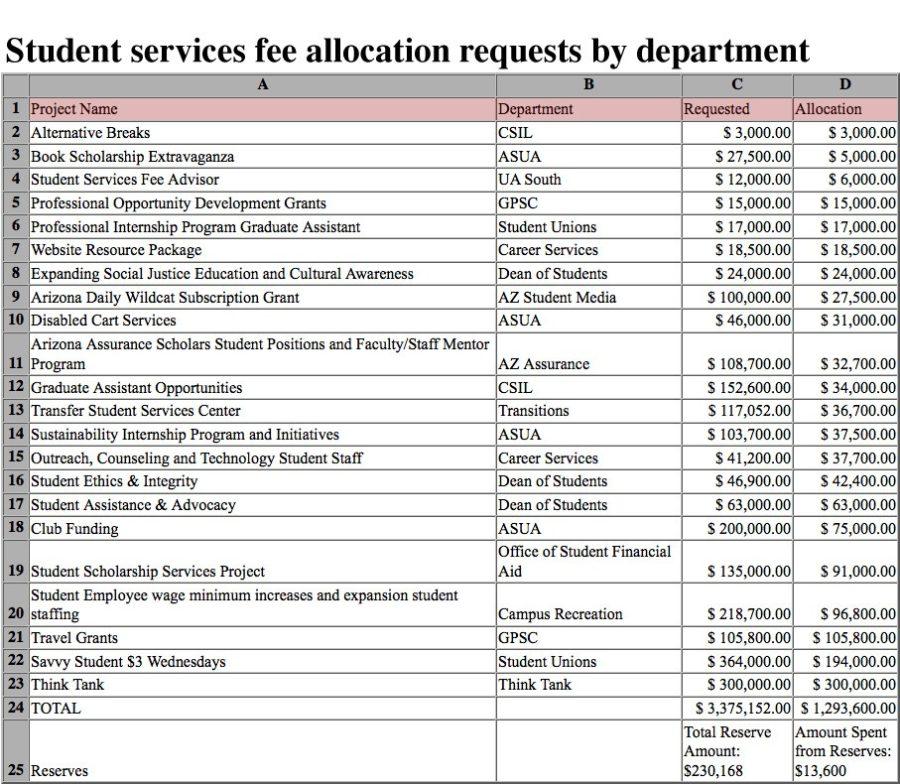Twenty more uses for next year’s student services fee met heavy debate at Friday’s three-and-a-half-hour Student Services Fee Advisory Board meeting.$1,281,360
The meeting allocated funding for both new and old programs. Many of the board members noted that Friday’s meeting was much more difficult than Tuesday’s because there were so many applications they wanted to fund but could not.
In fact, the board dipped into its reserve money to provide basic funding for a majority of programs on the agenda.
Agenda items like Savvy Student $3 Wednesdays met with deliberation from the 11 board members who were present, as well as more than 40 audience members.
“”I could see (a benefit) if we were giving the students a lifeline,”” said Cory Christenson, student services fee advisory board member and treasurer of the Graduate and Professional Student Council. “”But we’re not. We’re giving them a chicken sandwich.””
This discussion reflected the biggest problem of the night: limited funding and less of flexibility.
The closest vote of the night was a proposal from Student Affairs pushing for a student marketing team. Matthew Toltis, chair of the Student Services Fee Advisory Board, tipped the 5-4 vote against the proposal.
Toltis called the program “”exciting,”” but could not rationalize its funding in the current economic climate.
Many programs did not receive the funding they had hoped to acquire.
One such proposal, Operation Rescue from the Office of Student Financial Aid, which would aid students in finding financial aid, did not receive any funding.
The Dean of Students Office’s application for expanding social justice education and cultural awareness was also heavily discussed. The proposal received full funding after moving comments from GPSC President David Talenfeld, who compared not supporting diversity awareness to reverting back to “”majority tyranny.””
Many people, including Melissa Vito, vice president of Student Affairs, noted the professionalism of the student-run board.
“”You have a model process,”” Vito said, “”one I wish all parts of the campus could see.””
Of the 20 items on the agenda, four programs received full funding, eight failed to receive any funding, one was withdrawn by the applicant and the rest were given between one-third and one-half of their requested funding.
The student services fee meeting was part of the board’s attempt to be transparent, which is crucial to Toltis.
“”It’s really important that we go that extra mile,”” Toltis said. He also noted the importance to both Vito and the applying parties: “”(Friday) the scores will be in, if you will.””
All of the board’s recommendations will now go to Vito, who will approve final funding for the programs outlined in the meetings.
Final budgets will be approved and sent out by Vito no later than March 1.









